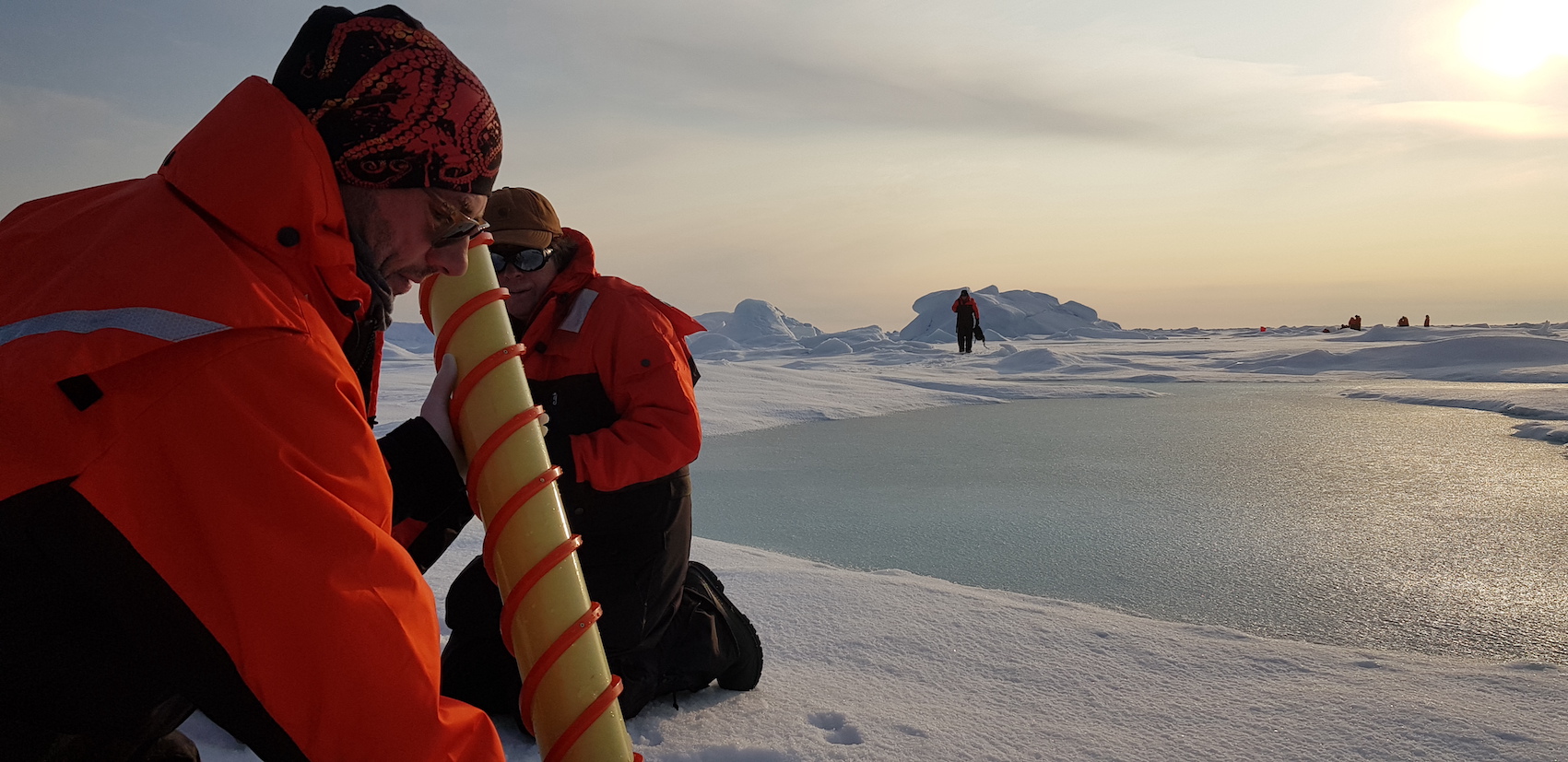Eu Funds Arctic Passion For 15 Million Euros
by GRID-Arendal | Published: 17-Jun-21 | Last updated: 17-Jun-21 | Tags : EU | category: NEWS
Arctic PASSION, a consortium of 35 partners from 17 countries, aims to enhance integration of international environmental observing systems for the Arctic.
"With the support from EU, we have a great opportunity to make Arctic observations more useful to the society at large”, says Michael Karcher, the project’s coordinator, Alfred Wegener Institute. © Cecilia Bertosio
Arctic PASSION name stands for ‘Pan-Arctic observing System of Systems: Implementing Observations for societal Needs’. The consortium will put efforts to tailor the observation systems to match better with the needs of diverse user groups, which range from the local people and academia to industry and decision-makers.
The Arctic PASSION project will officially start on 1 July. More information provided in the press releases by the partners and collaborators:
- Alfred Wegener Institute (in English and in German)
- Norwegian Polar Institute (in Norwegian)
- Norwegian Meteorological Institute (in Norwegian)
- University of Bergen (in Norwegian)
- University of Tromsø (in Norwegian)
- GRID-Arendal (in English and in Norwegian)
- APECS (in English)
- Women of the Arctic (in English)
- P.P. Shirshov Institute of Oceanology of Russian Academy of Sciences (in Russian)
- University of Bristol (in English)
- WMO’s Global Cryosphere Watch (in English)
- German Federal Ministry of Education and Research (in German)
The Arctic PASSION project participants are:
Alfred Wegener Institute, Helmholtz Centre for Polar and Marine Research – AWI (Germany), Arctic Monitoring and Assessment Programme Secretariat – AMAP (Norway), British Antarctic Survey UKRI-BAS (UK), CAE (Italy), Centre National de la Recherche Scientifique – CNRS (France), Consiglio Nazionale delle Ricerche – CNR (Italy), Danmarks Meteorologiske Institut (Denmark), Danmarks Tekniske Universitet (Denmark), Eidgenössische Forschungsanstalt für Wald, Schnee und Landschaft (Switzerland), European Polar Board (Netherlands), Gronlands Naturinstitut (Greenland), Ilmatieteen Laitos – Finnish Meteorological Institute (Finland), International Network for Terrestrial Research and Monitoring in the Arctic INTERACT (Sweden), Joint Research Centre – European Commission (Belgium), Lumimuutos Osuuskunta – Snowchange (Finland), Lunds Universitet (Sweden), Meteorologisk Institutt (Norway), National Centre for Polar and Ocean Research – NCPOR (India), Norsk Polarinstitutt (Norway), O.A.Sys – Ocean Atmosphere Systems GmbH (Germany), P.P. Shirshov Institute of Oceanology of Russian Academy of Sciences (Russia), Spatineo Oy (Finland), Stiftelsen Grid Arendal (Norway), Suomen Ymparistokeskus (Finland), Svalbard Integrated Arctic Earth Observing System SIOS Svalbard AS (Norway), the Arctic Institute of North America (Canada), The Inversion Lab Thomas Kaminski Consulting (Germany), Tomskij Gosudarstvennyj Universitet – Tomski State University (Russia), Universitetet i Bergen (Norway), Universitetet i Tromsoe – Norges Arktiske Universitet (Norway), University of Bristol (UK), University of Lapland – Lapin Yliopisto (Finland), University of Maryland Centre for Environmental Science (USA), University of Washington (USA), Women of the Arctic ry (Finland) and the Indigenous communities of Inupiaq and Yupiaq (Unalakleet, Alaska, USA), Tahltan Nation (Dease Lake, British Columbia, Canada), Gwitchin Nation (Tsiigehtchic, Northwest Territories, Canada), Inuit (Attu and Aasiaat, Greenland), Skolt Sámi (Näätämö River Basin, Finland and Norway), Skolt, Ter, Kildin Sámi (Ponoi River Basin, Murmansk, Russia), Khanty, Mansi (Khanty-Mansi Autonomous Okrug – Yugra, Russia), Chukchi, Even, Yukaghir, Dolgan (Lower Kolyma, Republic of Sakha-Yakutia, Russia) and members of the community members from the Qaanaaq region (Northwest Greenland).

